Last week Hallowood Institute presented a seminar titled, Fostering Healing in a Stressful World: A Clinical Exploration of Stress, Love and Attachment. Dr. Eleonora Bartoli looked carefully at the stress responses of our bodies that trigger fight, flight, and freeze responses. She noted that these responses are involuntary and physical, not mental choices. Given the stress-filled nature of our current lives in a global pandemic, many of us related to her points about feeling stuck in a survival response that cuts us off from thriving. We’ve heard much about creating safety for ourselves and others in these challenging moments, but there’s more than safety that’s needed. When in survival mode, our brains don’t access higher thinking skills or empathy. We need to connect with others in order to be truly well and safety is only a step toward this goal. Particularly in these days where so many of us feel estranged from others and our national conversations are filled with division and polarization, feelings well up and we often feel frozen, stuck, even paralyzed. These are trauma responses. Helplessness may be the most difficult emotion for humans to endure and it’s this emotion that is so prevalent today.
So what can we do? We need to use our bodies as well as our minds to repair what’s been injured within us. We need to move (our body’s best de-stressor) and we need to activate the resources of healing that are natural to our systems. These healing agents within our bodies are activated by connecting with other and feeling attached in healthy ways. Conscious and consistent care for one another is vital to our wellbeing and helps activate healing chemistry within our bodies. Call a friend when you’re done reading this short article.
For Christian therapists interested in integrating Christian spirituality into our work with clients, these ideas present helpful information to pass along to clients and to put into practice ourselves. One implication of the way our brains work is that we were designed for connection with God and with others and ourselves. Keeping spiritual routines that help us connect and reflect are powerful aids in allowing our bodies to repair and renew wellness across our systems. We need to be careful to turn away from ignoring our bodies as somehow “lesser” than our minds in our quest for deeper spirituality.
Remnants of gnostic thoughts seem to continue to pop up in sermons and in Bible interpretations. We are not separate from our bodies. We are created beings, embodied by God’s design. Let’s allow our spiritual practice to include body work, noting what we feel, where we feel it and how we can meet God here and now in the context of our genuine feelings. As we enter the Christmas season, we remember that God became incarnate. That is to say, God stepped into a body like ours, in order to redeem us through and through. The need to attach to a Loving Other is central to the gospel story for humans. Helplessness, although difficult to endure, is not foreign to our God who came as a tiny baby ready to meet us in our need.
